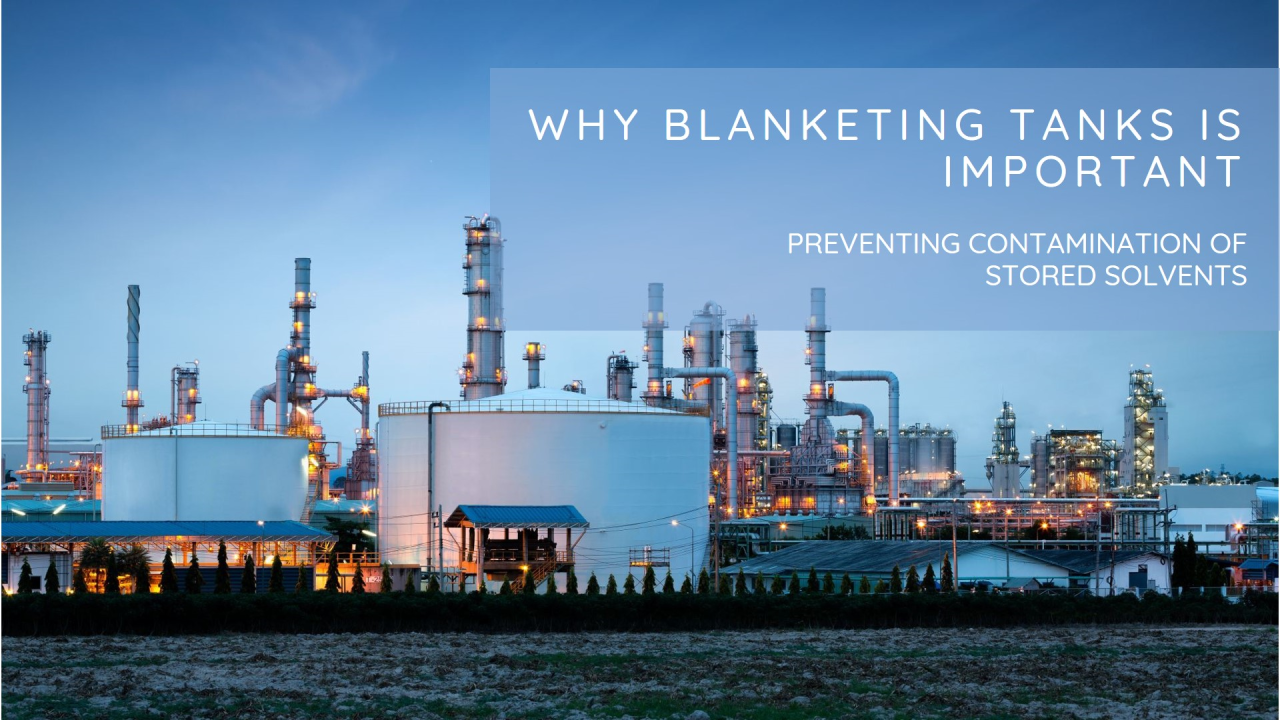
-
November 21, 2024
- 0 Comment
Why Common Storage Tank Blanketing for Different Solvents stored in tanks not recommended
When it comes to storage tank blanketing for solvents, utilizing a one-size-fits-all approach is often discouraged due to the unique properties of different solvents, which can pose distinct challenges to safety, storage, and environmental control. Each solvent has unique properties like volatility, flammability, and reactivity. For example, solvents like methanol, benzene, or acetone may require different blanketing systems because they react differently to temperature and pressure changes. Nirmal Industrial Controls specialize in safety systems for storage tanks, offering customized solutions that cater to specific industrial needs, particularly in sectors like oil and gas, petrochemicals, and pharmaceuticals.
Nitrogen Blanketing System helps, create a protective layer inside the tank to prevent air (especially oxygen) from coming into contact with the solvent, which can cause dangerous reactions or degrade the stored product. But using a common system for all types of solvents might not provide the right amount of pressure control, leading to risks like explosions, product contamination, or harmful emissions.
Improperly blanket-gassed tanks can lead to a range of hazards:
- Explosion Risk: Certain solvents can become volatile under pressure changes or temperature fluctuations. If the blanketing system does not account for the specific solvent’s characteristics, the risk of ignition increases. Nirmal’s ATEX Certified Flame Arresters and Pressure/Vacuum Relief Valves are examples of components designed to mitigate such risks, ensuring that tanks are protected from overpressure or vacuum conditions specific to the chemical stored.
- Product Contamination: Inadequate blanketing can result in oxygen ingress or moisture, leading to product degradation. Different solvents may react adversely when exposed to oxygen or moisture, reducing the quality of the stored material. Customized blanketing systems, offered by Nirmal Industrial Controls, help maintain product purity by using precise pressure controls tailored to the solvent type.
- Environmental Concerns: Volatile Organic Compounds (VOCs) from solvents can be harmful if released into the atmosphere. Tank blanketing systems must be optimized to limit emissions based on the specific solvent’s characteristics.

The reference image demonstrates how different tanks in a storage facility require specific setups, with visible safety equipment like breather valves, pressure relief valves and flame arresters on tanks that store more volatile materials. Each tank is labelled clearly based on its content, showing why using different approaches to tank blanketing is safer and more efficient.
Therefore, utilizing standardized or common blanketing systems across a variety of solvents may not account for these specific challenges, leading to operational inefficiencies and safety hazards. Nirmal specializes in offering industry-specific solutions that optimize storage conditions based on the solvent’s properties, enhancing safety, reducing risks, and improving operational efficiency.
